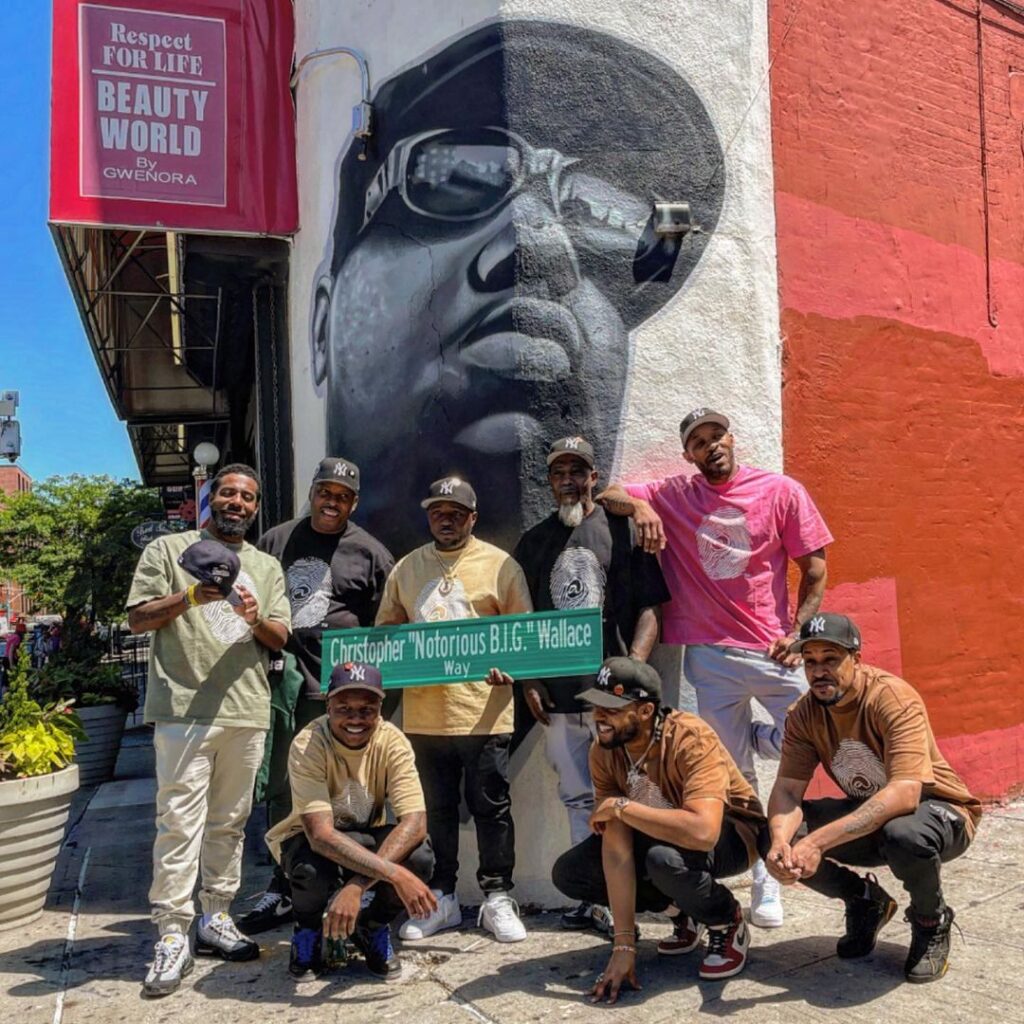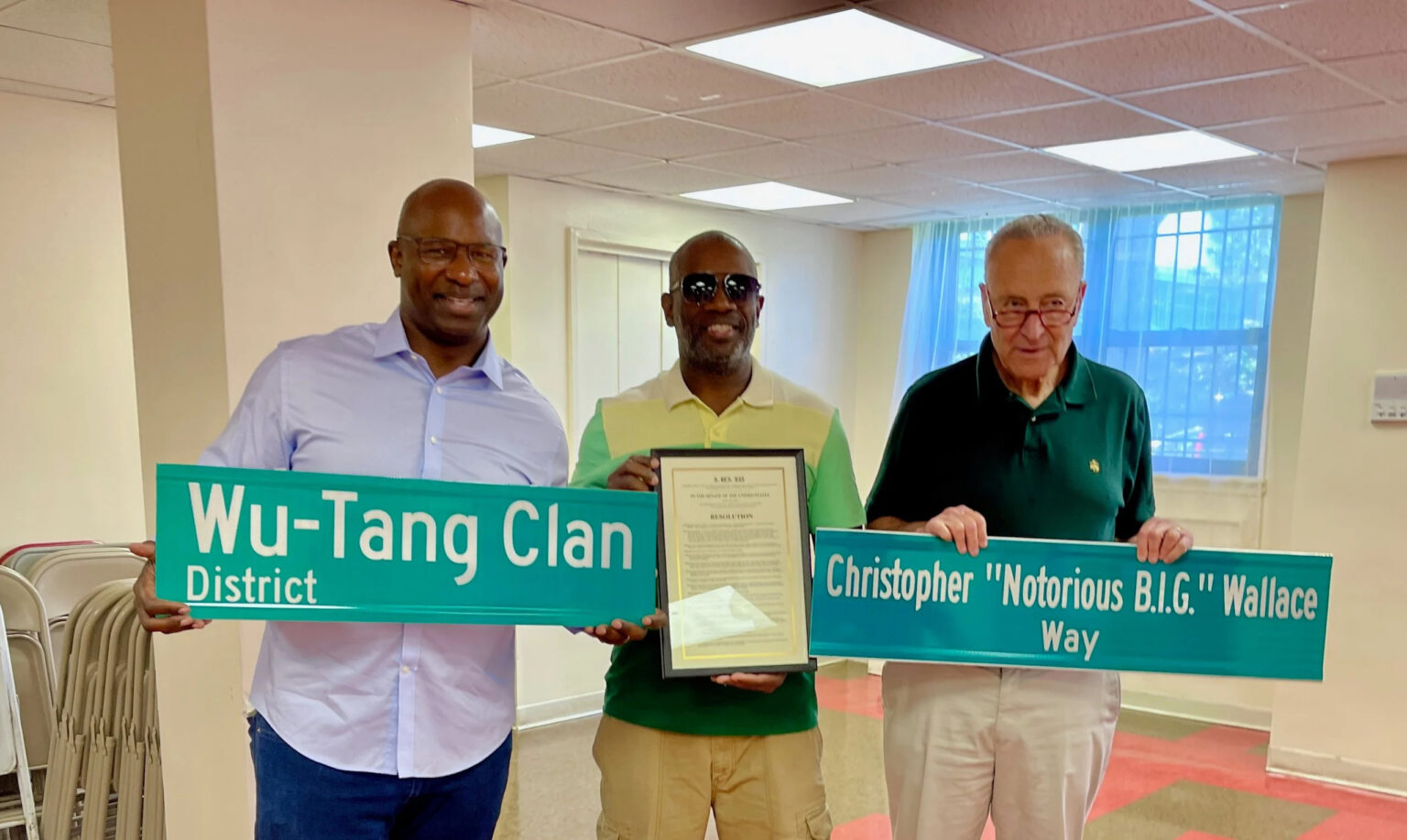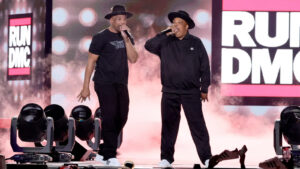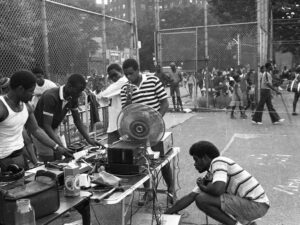La celebrazione del mezzo secolo compiuto dall’hip hop ha coinvolto tante persone con molte iniziative diverse tra loro. Una di queste ha coinvolto le vie della Grande Mela: alcune strade di New York sono state rinominate in onore dei rapper che hanno reso grande la cultura hip hop.
Hip Hop 50: un mese intero dedicato alla cultura
Se Jay-Z e Alicia Keys dicevano che la città di New York può ispirarti, oggi è lei che prende ispirazione dai rapper. Grazie all’iniziativa portata avanti dal documentarista LeRoy McCarthy, con la sua compagnia HeteroDoxX, sono state intitolate strade in diversi quartieri: Notorious B.I.G. a Brooklyn, Tupac a Oakland, Wu-Tang Clan a Staten Island, Beastie Boys a Manhattan e De La Soul a Long Island. A queste prime, è già previsto che verranno aggiunte altre strade con i nomi di ulteriori artisti.
Questa novità si è avuta a séguito di una decisione del Congresso degli Stati Uniti che, oltre all’Hip Hop Celebration Day dell’11 agosto, ha soprannominato tutto il mese in Hip-Hop Recognition Month in onore dei cinquant’anni della cultura hip hop. La passione di LeRoy McCarthy – che si è autoproclamato “avvocato culturale” – ha portato a questi riconoscimenti impressi sulle strade di NY che resteranno sotto gli occhi di tutti, anche – e soprattutto – nello sguardo della prossima generazione che sarà incentivata ancor di più a portare avanti la memoria di chi ha fatto fiorire tutto il movimento culturale.
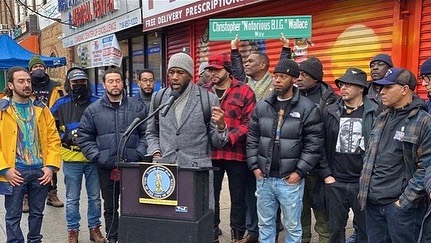
LeRoy McCarthy: il promotore delle strade dedicate all’hip hop
Da sempre affascinato dell’hip hop, LeRoy McCarthy ha rilasciato dichiarazioni affettuose per la cultura. Ha ripercorso la sua crescita personale sulle note della musica hip hop, essendo quasi coetaneo della doppia H. Già da bambino, McCarthy poteva ascoltare in sottofondo le canzoni rap frequentando parco giochi, le mense scolastiche o alle feste di quartiere:
«I’m 55, so pretty much grew up Hip Hop. It was already forming as I was growing up. I came up at a time during the late 70s and early 80s when it was still burgeoning. Where I went to school in Brooklyn, in the playgrounds or the school cafeteria, you could hear rappers Spoonie Gee on tapes, the block parties, and at the different functions. Hearing and seeing Hip Hop develop as I was growing up was just a normal thing so my first memories of Hip Hop were the parties in Brooklyn».
Nato in Giamaica come il padrino dell’hip hop DJ Kool Herc, LeRoy McCarthy e la sua famiglia sono emigrati negli Stati Uniti quando lui era bambino. Secondo il documentarista, l’influenza giamaicana sull’hip hop si percepiva nelle feste di quartiere caratterizzate dalla musica a tutto volume che riempiva le strade:
«Over the top speakers, and over the top sound systems is definitely a Jamaican thing. The DJs, who they would call selectors, spoke over the music records, and putting them together was very common. When I was growing up, even going to church, we had a different way of doing things in Jamaican communities and Caribbean communities that I can see reflected in the way Hip Hop was developing.
In Brooklyn, where I grew up, the loud music, the large speakers, on top of speakers, block parties, or backyard parties, were common things. Hip Hop just matriculated into guys from the neighborhood who became rappers and DJs».
Prima di diventare un grande sostenitore della cultura hip hop, McCarthy ha iniziato la sua carriera lavorando nella produzione cinematografica e televisiva nel 1997 come stagista sul set di He Got Game di Spike Lee. Dopo questa esperienza, ha lavorato come location manager per oltre due decenni. Ai tempi del liceo, ha anche partecipato come attore in un film divenuto un classico dell’hip hop ovvero Above The Rim in cui, tra i protagonisti, figurava Tupac:
«Even before I started working on films, I was a background extra on Above The Rim. It was filmed at my school, Tilden High School in Brooklyn. I was just passing by the set and I saw somebody I knew who knew another guy who was casting extras in the film. They asked me if I wanted to work and I said “Yeah”. We worked for two full days at the Tilden gymnasium and Tupac was there, Leon was there and all the other actors. Bringing this back to today, when I got the street name for Tupac, I reached out to Leon and he wrote a letter of support for it».
L’iniziativa di dedicare le vie di New York ai protagonisti dell’hip hop non è stata così semplice. È servito il coinvolgimento di più figure, politici e manager su tutti. Spesso, la burocrazia ha complicato la situazione, come nel caso dei Beastie Boys che ha richiesto molta fatica, vista la reticenza di alcuni politici di Manhattan:
«The politics and the community board in Manhattan didn’t think that the Beastie Boys were worthy to be honored with a street name because of their politics. At the time, there was a city council member who was a nice lady but her staff didn’t really entertain the idea of honoring them. It wasn’t until we got a new city council and a new city council member, Christopher Martre began representing that same district, that we finally got it approved. He worked with us and it was passed by the city council in 2022. In September 2023, the forthcoming street naming for Beastie Boys will be dedicated in Manhattan».
Attualmente, McCarthy sta lavorando per rinominare altre vie della città. Gli altri artisti a cui intende fare il suo tributo sono i Public Enemy, gli Outkast, i Fugees e i Naughty By Nature. Il suo instancabile lavoro è stato ispirato da sua nonna che gli ha insegnato a prendersi cura di tutto ciò a cui attribuisce valore. McCarthy incarna questa etica con il suo impegno a preservare la storia dell’hip hop per le generazioni future:
«My grandmother was a Garveyite. There is something to be said about the movement of Marcus Garvey, and what he tried to accomplish. But for today, how do we get that message across? It’s not necessarily back to Africa in a physical sense because a lot of people that talked about going back to Africa didn’t actually make it back. But there is an empowerment that I feel that could be had by honoring Hip Hop. From Biggie to Tupac to A Tribe Called Quest to Wu-Tang to the Roots and others. Even working with Senator Chuck Schumer, to have a resolution that honors Hip Hop, I believe it can empower the Hip Hop community.
In my travels, I’ve been to Nashville and they celebrate country music in Nashville. In New Orleans, they celebrate jazz music. Hip Hop is an American indigenous genre and it would be appropriate for New York City to honor the culture during its 50th anniversary year and beyond. Getting streets named after Hip Hop icons empowers the communities where Hip Hop comes from although these communities change over time. That’s why it is very significant to have a street name for Biggie Smalls in Brooklyn today».
